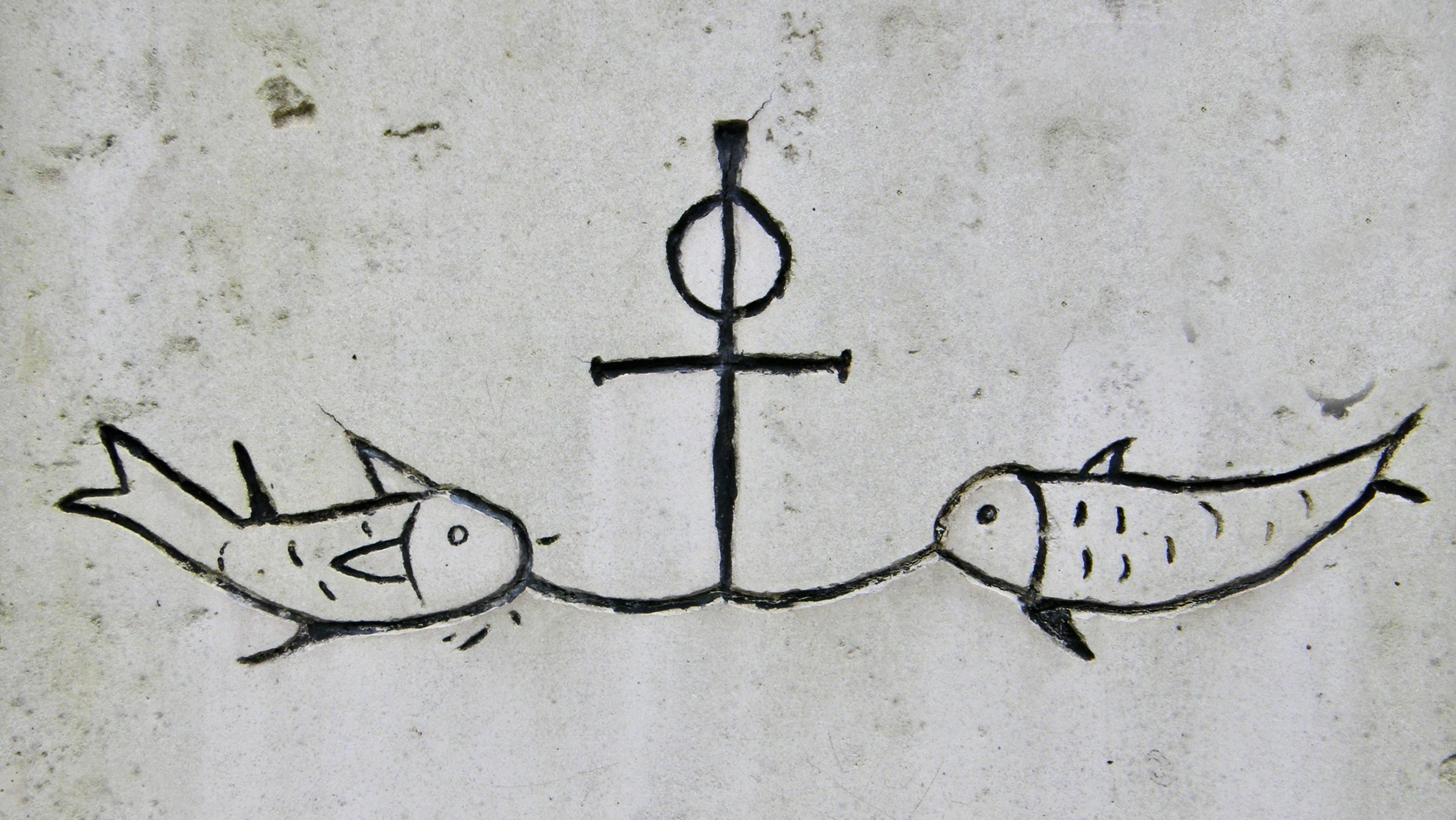Clement’s Anchor

by Pastor Gene
God can speak to us in many different ways. He may ping our hearts with conviction as we listen to a sermon, or as we read the Bible. Or He may speak a word through a brother or sister during a time of fellowship. Or perhaps the Holy Spirit might whisper to us in a still, small voice in our prayer time. But, however it comes, it’s important that we respond positively to the Spirit’s voice when He speaks.
It should come as no surprise that this is not a novel teaching! In fact, it’s been at the very heart of the Christian faith since it’s very beginning.
Clement of Rome was a first century convert who had the high privilege of being personally taught by the apostles. Irenaeus tells us that Clement had “seen the blessed apostles, and had been conversant with them, [and that he] might be said to have the preaching of the apostles still echoing [in his ears], and their traditions before his eyes” (Contra Heresies 3:3).
According to Origen of Alexandria (AD 185—284) and Eusebius of Caesarea (AD 260—340), he was the very Clement referred to by Paul in Philippians 4:3.
Clement eventually became an important leader in the church – his Letter to the Corinthians is still one of the most treasured of the early Christian writings. The Church of San Clemente in Rome was built above the house where he lived and minister to God’s people.
According to a later tradition, he was thrown into the sea fastened to an anchor and so went to be with his Lord. Because of this, his image is often represented with an anchor in Christian art and iconography.
In one place, Clement wrote about obedience and blessing. He was referring to the grave warnings against ignoring God’s wisdom found in Proverbs 1:20-33. This dear brother’s comment provides us with a snapshot into how the earliest Christians thought about obeying God’s Word. He wrote: “So, then, let us obey his most holy and glorious name and escape the threats which wisdom has predicted against the disobedient. In that way we shall live in peace, having our confidence in his most holy and majestic name. Accept our advice, and you will never regret it.”
Amen and amen!
Clement’s desire to obey God was informed by His high view of God. He urged that all should obey “His most holy and glorious name.”
Knowing Jesus as the Savior of his soul was Clement’s true anchor – an anchor far stronger than the one that pulled him down into the cold waters off the coast of Italy.
That earthly anchor had but a fleeting effect upon him and has long since ceased to be. But the anchor of his faith – his love for God and the salvation he found in Jesus – provided for him a glorious entrance into the heavenly realms!
Just before his martyrdom the apostle Paul wrote to Timothy. It’s his last recorded words. He wrote:
“I am already being poured out as a drink offering, and the time of my departure has come. I have fought the good fight, I have finished the race, I have kept the faith. Henceforth there is laid up for me the crown of righteousness, which the Lord, the righteous judge, will award to me on that day, and not only to me but also to all who have loved his appearing …
At my first defense no one came to stand by me, but all deserted me. May it not be charged against them! But the Lord stood by me and strengthened me, so that through me the message might be fully proclaimed and all the Gentiles might hear it. So, I was rescued from the lion’s mouth. The Lord will rescue me from every evil deed and bring me safely into his heavenly kingdom. To him be the glory forever and ever. Amen” (2 Timothy 4:6-8, 16-18).
The anchor held for Paul. It held for Clement. It holds for us. And it will hold for all who truly belong to Jesus until He returns!
So, let’s agree with Clement and obey God’s “most holy and glorious name.”
His promise is true: “Accept our advice, and you will never regret it.”
To consider:
- Be honest: What is your anchor in this life?
Clement wrote that in obeying God “we shall live in peace, having our confidence in his most holy and majestic name.”
- How has the thinking of the modern church drifted from this conviction?
- The writer of Hebrews speaks of Christian hope as a “sure and steadfast anchor of the soul” (6:19).
The great Greek exegete R. C. H. Lenski writes: “We now have this hope ‘as an anchor of the soul’ to prevent our being swept away. Hope is often likened to an anchor, not to one that is lying in the ship, but to one that is gripping the bottom of the sea and holding the ship” (Lenski, The Interpretation of the Epistle to the Hebrews and of the Epistle of James, Columbus, OH: Lutheran Book Concern, 1938, p. 204).
Don’t you love that? No matter what may be going on on the surface, the anchor of the hope we have in Jesus is gripping the rocks at the bottom of the sea and holding us steady until we go to meet the Pilot of our salvation!
Maranatha! Come Lord Jesus!
Recommended Posts

Resurrection Sunday
April 17, 2022

Harvest Talk for Harvest’s People
October 10, 2021

The Long Road Back to Bethel
July 25, 2021
Comments
Comments are closed.

It is so good to know that in all areas of life, God can be our anchor. We may not always remember that, yet, the anchor is still there when we do.
As I read today’s blog I am reminded that God speaks to all of us in different ways. He speaks to me in a unique way that is exactly what I need to hear. Although what I am told may be different then what is told to someone else; the same principles, standards or rules are the same. We are all accountable to hold our actions against what is told to us through scripture. In the consider portion of today’s blog we were asked to consider how has the thinking of the modern church drifted from this conviction. I feel as though the modern church in general has strayed from the truth and has altered the scriptures to line up with society’s thinking (rather than what is stated in the word of God). I believe this way of thinking has caused much confusion and has harmed the testimony of the church.
That Anchor – of course I think of an older song – the anchor holds though the ship is battered – the anchor holds though the sails are torn – I have fallen on my knees as I faced the raging seas the anchor holds in spite of the storm . I can’t imagine life without the anchor of my Jesus for without that what hope would I have? Thinking of the early believers and knowing their faith could lead to death how much more should we cling to that anchor – since we have such freedom? And I wonder though if because of that very freedom we don’t cling to our anchor as we should but as a last resort or thought? I know that at times of desperation and darkest times is when Jesus shined the brightest and was my anchor. Thank you God for this gift our Lord and Savior Jesus!
Joy, that song is the first thing that came to my mind, too! It’s one of my very favorites!